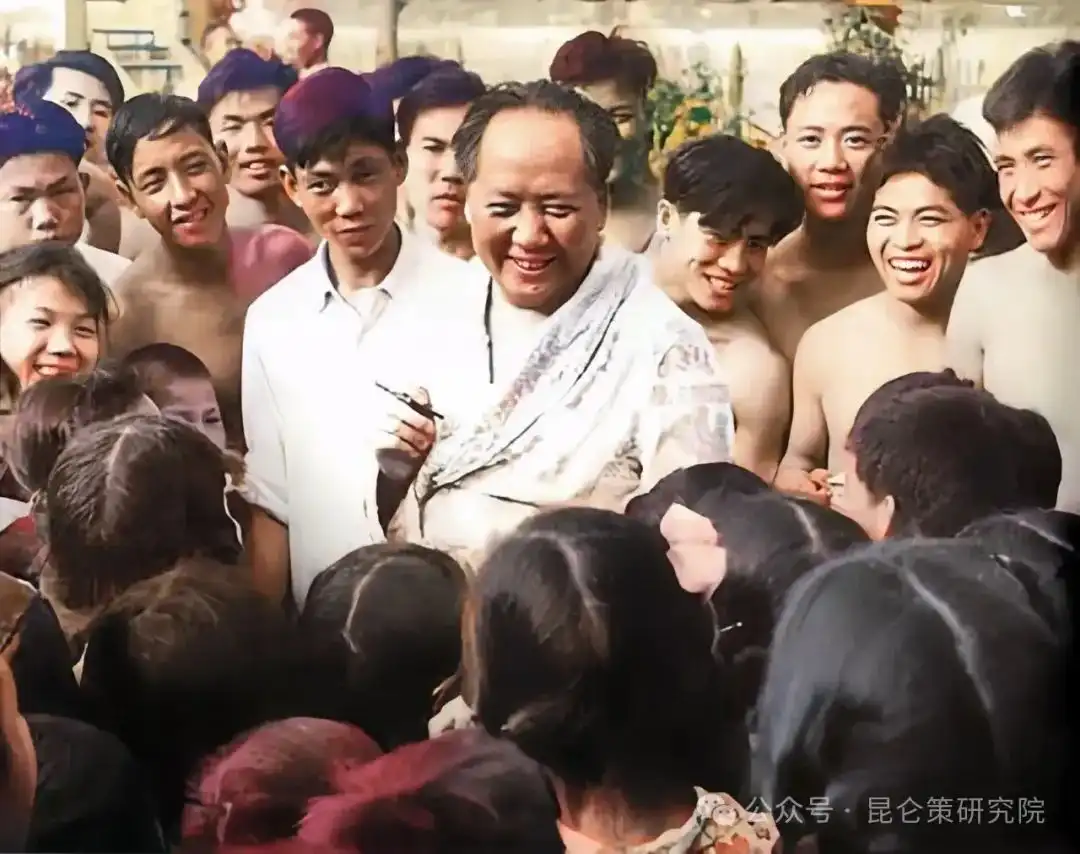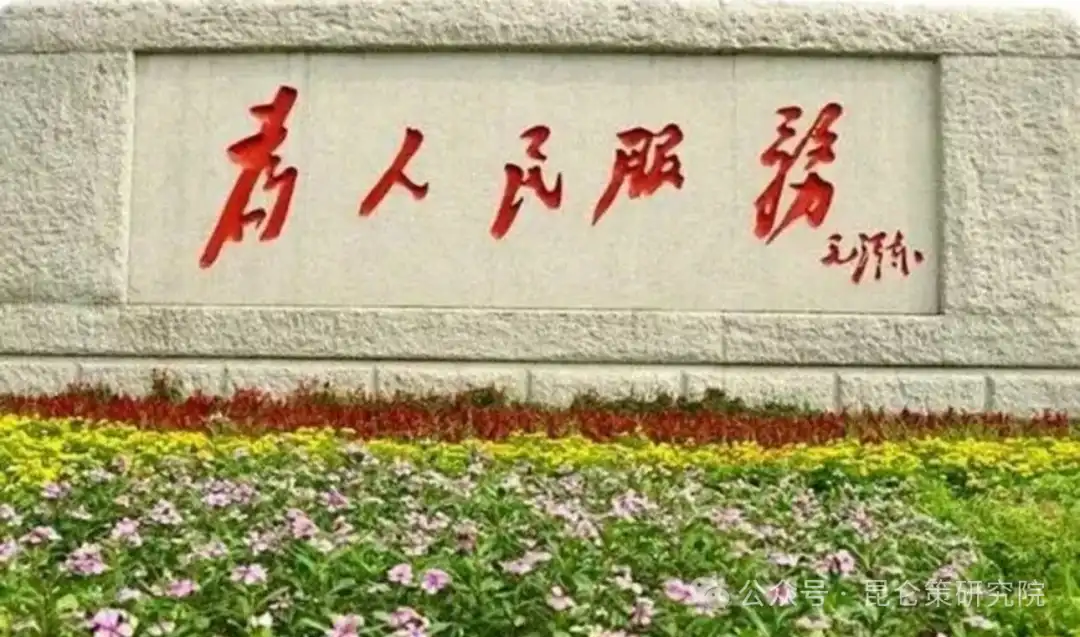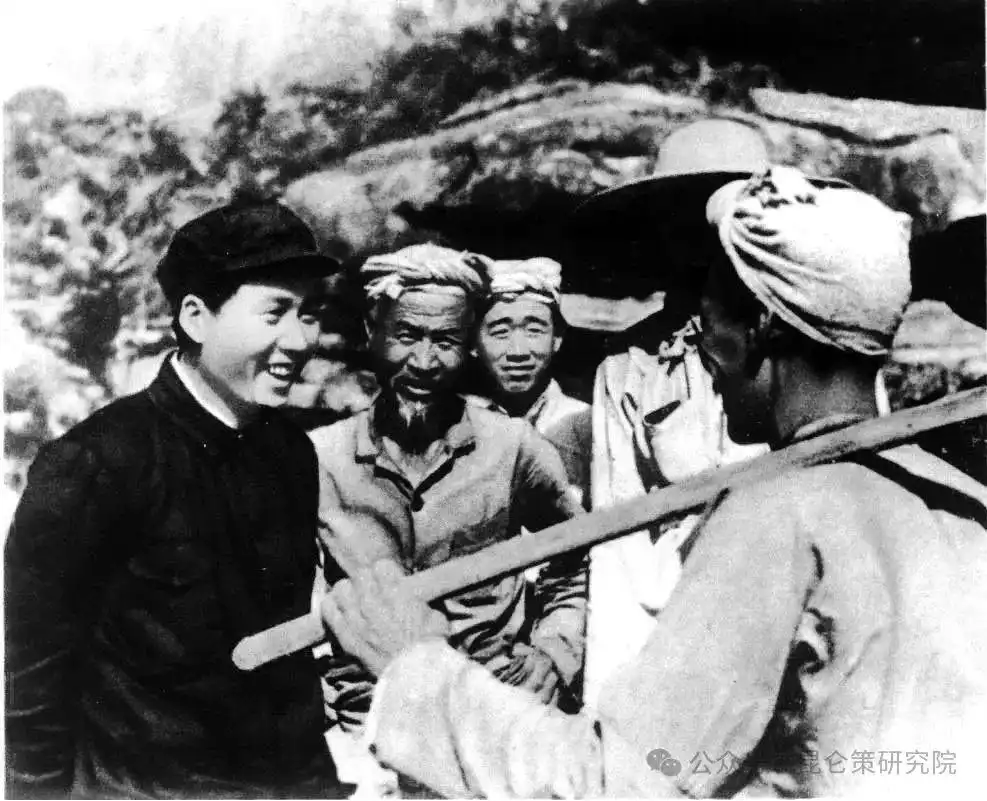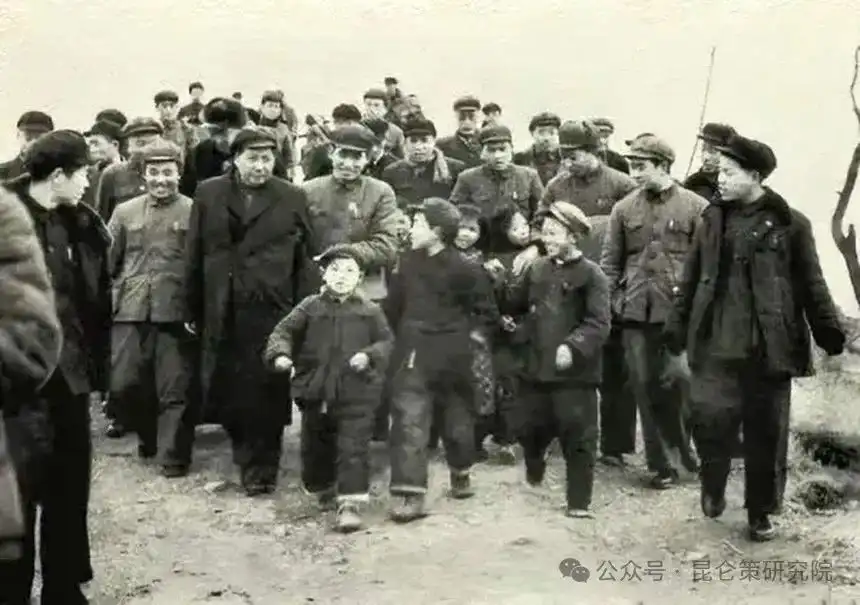The government's threshold is high, and the people's hearts are blocked
Click "Kunlun Policy Research Institute" above to follow this account; click "..." in the top right corner to select the reading function, and the voice is automatically synthesized by the computer, which is inevitably wrong and is only for auxiliary reading.

In the past, I habitually wrote the words "People's Government" in my titles, but after typing them out, I was afraid of provoking resentment from the public and making them misunderstand that my knowledge was different from theirs. Secondly, I truly feel that many of our current grassroots governments do not deserve or are not worthy of being called "people's". Therefore, I can only be "disrespectful" and remove the words "people's".
This kind of "great disrespect" stems from several things I have personally experienced and heard.
After many years of retirement, as a former unit leader, in order to prevent people from falling into the land, he knew that it was inappropriate to appear in his original unit more often, so he rarely returned to his original unit to harass him. Recently, there was something I had to go to my work in person. Unexpectedly, when I arrived at the original unit that had been relocated, I saw the new comprehensive office building for various departments arranged by the government. While lamenting the grandeur of the new building, I felt a certain extreme discomfort. This discomfort is mainly caused by the electronic access control system installed at the door of the office building when entering the door. In the new office building, staff are not allowed to enter unless they brush their faces; other personnel, including retired cadres like themselves, are not allowed to enter without detailed registration. When I was registering, I saw several migrant workers who looked like they were working, being blocked out of the entrance control. Fortunately, I had not finished registering yet, and I had to enter the door when I met subordinates from the past. I introduced my identity to the staff who managed the access control, so that many complicated registration procedures were avoided.
When meeting with a group of friends to talk about this matter, one of them who served as a leader of a certain unit before retiring told another story:After retirement, he served as the president of a research society supervised by his unit, and the unit also arranged an office. There is not much to do at the research club, so friends generally don't go to the office much. After the Spring Festival this year, a friend wanted to go to a research meeting to take care of his work. When he was driving into the municipal party committee and government compound, he was blocked by security guards and refused to open the access control system. The reason is that there are new regulations for entering and exiting the compound, and there is no registration input in the vehicle access control system opened by a friend. The friend took out his work permit and repeatedly explained the situation, and said that to register the vehicle, he had to go to the office first, open a letter of introduction and affix the official seal before registering, and promised to go through the vehicle registration procedures immediately after entering. But after all, the security guard still insisted:People can enter after registration, but vehicles are not allowed to enter. friend asked:"What about the car? There is no parking lot nearby, so we can't park it on the street and let the traffic police post a ticket, right?" The security guard replied:"That's your business, we just follow the rules." The friend asked curiously:"What if people from counties and districts want to enter the compound? It's impossible to enter all the vehicles that the county and district wants to do business into the system in advance, right?" The security guard replied:"This is not your business." There was a stalemate for a few minutes. When a friend saw a car coming out of the inside and the access control was opened, he took the opportunity to drive the car in and park it in the compound parking lot. Unexpectedly, after his friend came out from the office, he found that the wheel was locked. Later, a friend called an acquaintance to intercede, and finally the security department reluctantly sent someone to open the lock that locked the car. The friend said angrily:"It is so difficult for a county-level cadre who has worked in the municipal party committee and government compound for decades to enter the compound with his certificate. Who knows how many obstacles there will be if he wants to see the leaders of the municipal party committee and government? And if the people want to find leaders, they don't have to think about it."
The above two incidents remind the author of another incident:Last year, I went to a county to see a comrade. When I entered the gate of the county party committee and government, I also checked my ID card and relevant certificates, registered, left telephone numbers, etc. before the staff managing the access control system allowed him to pass it. Unexpectedly, when we arrived at the floor we were going to, the door to the floor was also equipped with an access control system. Staff members enter by brushing their faces, and outsiders can enter by opening the door by people inside. At that time, I thought, how would ordinary people who did not know what to do feel in such a situation? If they are ordinary people who want to petition or report the situation, will anyone be willing or dare to open the door from the inside and let them in when they want to enter?
When the author wanted to move to write this article, in order to understand the situation at the grassroots level, especially at the township level, I called three friends who worked at the county level and five friends who worked or lived in the countryside. I inquired about the situation at the county level and township level in their respective counties and townships. Three friends working in county-level units responded:Access control systems are installed at the county level, especially in the county party committee government building, and a strict registration management system is implemented for non-staff members entering the building. Three friends at the township level responded:The towns where they are located also implement such access control management methods. Anyone who wants to come to the township to do business or find township cadres can first enter through the security guards at the door. If the security guards do not agree, they cannot enter. One of them told the author that the security guards guarding the gate in towns and villages have become "fat" positions. To enter the gate to find leaders, you must first give the security guards guarding the gate a "meaning" and at least smoke a few cigarettes before you can enter.
This situation makes the author really speechless. I wonder if the village committee, neighborhood committee or even village group will follow this approach in the next step?
Not to mention how much it costs taxpayers to purchase so many access control systems in various places and units, nor how much public expenses will be increased by so many access control managers. From an emotional point of view, not to mention that it is difficult for ordinary people in many places, especially those who report problems, to enter such a "threshold", even if they can enter, this access control system is no different from a "killing stick" in the court of feudal society, giving kind ordinary people a psychological "sense of fear" before entering the door. When this kind of "fear" hangs over the hearts of ordinary people, who can believe that ordinary people still dare to confidently and equally report the problems and situations they should have reported to government personnel?
From this, the author can't help but think of ancient people beating drums in court and blocking sedan chairs to shout for injustice in costume dramas and film and television works! Under the above circumstances, is there still this possibility for ordinary people? And our governments at all levels are called "people's government"!

经笔者与有关人员私下沟通了解,形成这种状况的原因,主要有以下几方面,在此,笔者顺便提出自己的一些看法:
First: 电子门禁系统大多是新冠疫情期间为了有效防控所购置的,现在疫情虽然过去,但既然已经购置,不用这些设备也是一种浪费。但依笔者之见,此说并不成立。尽管可能有不少设备是疫情期间购置的,但疫情过后,如果当政者心中还有一点群众观念,从方便群众办事的角度考虑,这些设备即使原地不动,也完全可以打开门禁系统,让老百姓自由出入。更何况据笔者了解,有一些设备是新安装上的。还有一些所谓更加严格的进入“规矩”,是新近才立起来的。试想,如果这些门禁系统换作是对当政者权力行使有碍的某个系统,这些当政者还会因为是疫情期间购置的而继续使用吗?更何况使用这些门禁系统,不仅每天要耗费为数不少的电力,还要耗费不少的人力物力,增加不少公费开支。
Second,: 为了保证机关正常的工作秩序。此说照样不能成立。什么叫正常的工作秩序?基层政府特别是各部门,不就是面对老百姓,每天为老百姓办事,处理老百姓遇到的疑难问题吗?难道老百姓正常进入你的办公室,就影响了你的正常工作秩序了吗?笔者也曾有多半辈子在机关工作的经历,还长期在市一级机关担任着县级领导干部,每天大量的时间就是处理老百姓遇到的具体事务,并没感到处理这些事有什么不应该,更没有感到耽误了自己的其他正常工作。不知道县里的一个科级干部甚至是一般工作人员,有什么更重要的事情不便于群众打扰呢?
Three says: 现在的社会太复杂,恶性事件随时可能发生,为了保证机关工作人员的安全,需要安装这样的进门审查系统。这种观点更是无稽之谈。首先,门禁登记总得有人管理吧?退一万步讲,假设即使有人想搞恶性事件甚至有恐怖分子要制造事端,就不会向门口的登记人员发起攻击吗?是不是门口登记人员的命就不如我们坐在机关办公室内的工作人员的命值钱呢?何况我们现在的社会还是基本和谐,从没有听到过哪里的基层政府发生过恶性事件或恐怖袭击之类的事件。再退一万步,即使有人反映问题时有一些过激行为,也说明正是我们的工作不到位或方法不对所造成的,正确的做法是改进官僚作风,提高我们处理矛盾和问题的能力,而不是一味地去回避。而设立这样的门禁系统,矛盾和问题就会自动消除吗?难道我们的当政者,就不怕有一天矛盾积累到一定程度时,集中爆发吗?难道非要让人民群众都跑到开封府包公塑像前哭诉吗?非要让群众被迫地去越级上访,到上一级政府去寻求问题的解决吗?因此,有这种思维的人,不仅暴露了自己能力上的不自信,更暴露了根本没有把习近平总书记“以人民利益为中心”的要求落到实处,更没有放到心坎上。
诚然,在任何国家,一定级别的人员必要的安保措施还是应该有的,笔者提出上述问题,也并不是一概否定必要的安全保卫工作,但最起码直接面对老百姓的市级以下机关和县级以下党委政府,有必要面对群众如临大敌,搞得那样风声鹤唳,草木皆兵吗?

曾记得读过不少回忆文章,在延安时代,包括一个老农民,要见毛主席、朱总司令、周副主席这些大人物,也非常容易。这些领袖人物,还时不时主动地抽空到人民中间去了解情况,融洽感情。那可是在残酷的战争年代,日本及其国民党特务随时可能混入革命队伍内啊!
在建国初的1953年春节期间,毛主席在武汉视察时,为了接触人民群众,固执地不听警卫人员的劝阻,徒步漫游蛇山黄鹤楼,并走访了沿途居住的一户军属,与沿街摆摊的小商小贩进行了交谈,了解老百姓的经营情况和生活状况。最终毛主席还是被一名小学生认了出来,引来了如潮般的游人和市民的万分激动。当负责警卫的公安部长罗瑞卿考虑到抗美援朝还没有结束,蒋介石时刻派特务进行破坏,用飞机骚扰沿海城市等因素时,劝说毛主席避开群众,毛主席又一次固执地拒绝说:“我不愿意避开群众,我乐于跟群众在一起。”并坚持步行两个多小时从围观的人群中穿过,还频频地向老百姓握手、招手致意。这样的事在建国初毛主席的出行中,在北京城以及天津等地都发生过。难道在我们的一些当政者心中,现在的社会情况比当年还复杂吗?自己的生命比毛主席还尊贵吗?
这样的亲民作风同样体现在习近平总书记身上,2013年12月28日,习近平总书记一行到北京京桥热电有限公司和海淀区四季青敬老院,看望一线职工、慰问困难群众后,沿途在北京西城区的庆丰包子铺与群众一道排队买包子吃的事例大家应该还记忆犹新。而习总书记出行考察不清场,不封路,并与沿途遇到的群众亲切交谈的场景也屡见不鲜。对照领袖人物的这些言行,我们的一些基层当政者难道就没有一丁点心里触动吗?
“门难进、脸难看”,是几十年来我们一直坚持清理的“衙门作风”,没想到的是,在现阶段“门难进”却进一步演绎为基层政府的一种制度性顽疾,不知道我们的基层政府,到底还准备与人民群众离多远?
(作者系昆仑策研究院特约研究员;
